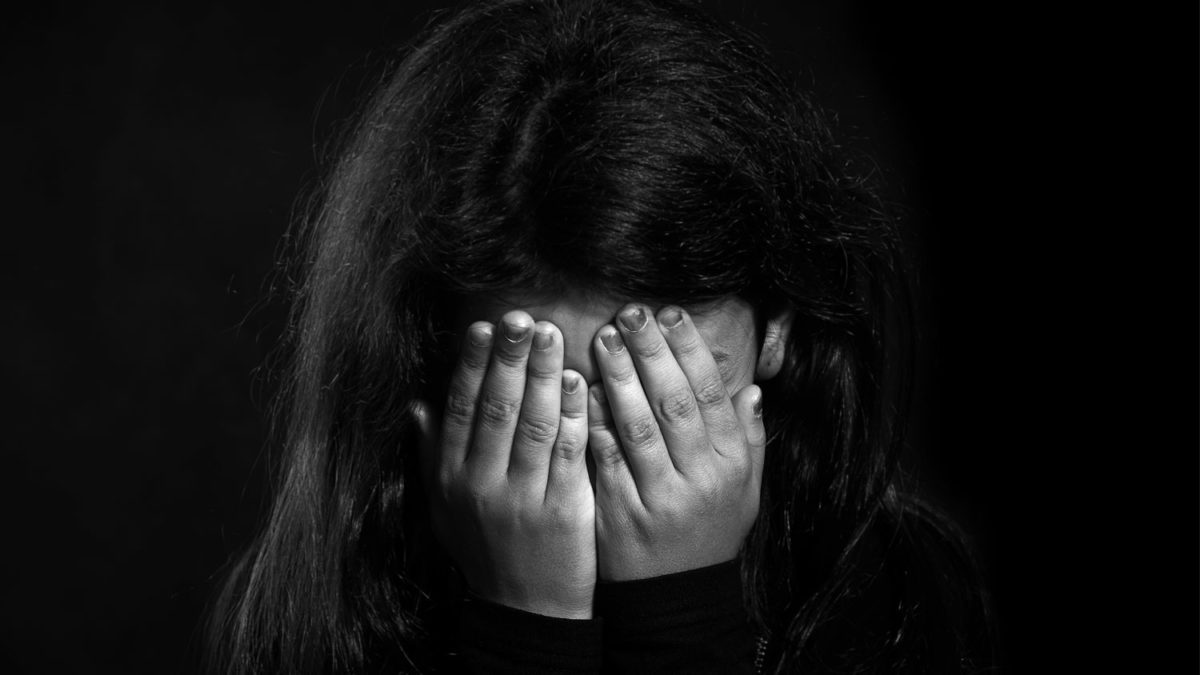- Legal Education and Access Portal
Sexual Abuse and Exploitation: The Pakistani Landscape
Children are often considered as the future of a country but are also considered as the most vulnerable members of society who are prey to all kinds of dangers. According to statistics children make up 44% of the population of Pakistan[1]. It is vital for the future of the whole country to protect these children and give them a safe protected environment to grow up and develop. However, Pakistan has not been successful in protecting children nor upholding their rights. This article seeks to understand how prevalent child sexual abuse is in Pakistan and attempts to find if any protection is granted to the most vulnerable part of society from child sexual abuse and exploitation.
The Prevalence of Child Sexual Abuse in Pakistan
The concept of child abuse can be described as any action that causes physical or emotional harm to a child. The harm may be triggered by physical abuse, neglect, sexual abuse and emotional abuse. David Cottrell defined child sexual abuse as “involvement of dependent, developmentally immature children and adolescents in sexual activities they do not fully comprehend, to which they are unable to give informed consent, or that violates the social taboos of family.”[2]
Incidents of sexual abuse according to Sahil are generally underreported in Pakistan due to the social consequences and stigma attached to victims of sexual abuse. Even with underreported cases the statistics show that sexual abuse is prevalent across Pakistan. The more alarming part is that systematic and efficient solutions to protect children have not been employed in order to tackle this problem. One of the leading Pakistani newspaper “The News” has reported that in 2018, 3,832 cases of child sexual abuse were reported.[3] This showed a 33% increase from the previous year. Furthermore, a report released by the Lahore Press Club stated that between January 2019 and June 2019 that 729 girls and 575 boys became victims of sexual exploitation.[4] This makes it clear that this practice targets both girls and boys.
This issue is not limited to some areas but it seems prevalent across all four provinces. However, the city of Kasur has become infamous for such incidents in the country. On 9th of January 2018 the body of 7 years old Zainab Ansari was found in a dumpster in Kasur. She had been raped and murdered by her own neighbor. The convict was sentenced to death after a nationwide protest and public outcry for the protection of innocent children. However, justice was not done by the swift prosecution of the culprit because the executive had failed to do its operational duty to prevent such acts in the first place when they were aware of the threats in the area. There had been 12 reported cases of child sexual abuse and exploitation reported in 10 km radius over the year and yet the state officials in charge did not take any preventive nor awareness measures.[5] Also in 2015 Kasur had been recognized for being a hub of child sexual exploitation and pornography. The lawyer representing the victims, Latif Ahmed Sara, reported that almost 295 children were filmed being sexually abused and later those videos were used to blackmail the parents of the children for money.[6]
Cultural Factors which Facilitate Child Sexual Abuse
Unattended children, street children, runaways, working children and poor children are most likely to be victims of sexual abuse and exploitation since they are easy prey without the presence of their parents. There have been reported incidents of drivers molesting their charges when picking them up from school. Another place where its shockingly common are the religious centers also known Madrasas. In 2004, around 500 complaints were reported where it was reported that children had been abused by madrasa clerics who were in charge of teaching them Quran and religious scriptures.[7] According to a report of Associated Press, hundreds of cases of sexual abuse by clerics have been reported in the past decade, and officials suspect there are many more within a far-reaching system that teaches at least 2 million children in Pakistan.[8]. However, it is seldomly acknowledged by the public or the media in Pakistan due to the fact how culturally dominant clerics are in Pakistan and the parents of victims are afraid of the backlash and scrutiny. Furthermore, it is a taboo to acknowledge sexual relations and abuse thus the society inadvertently protects the culprit.
It is not only the social norms and cultural practices of Pakistan that stop children or their parents from reporting but also, they at times facilitate it for example in the cases of child marriages and the very common practice of bachabazi. In the culture of tribal areas of Khyber Pakhtunkhwa and Baluchistan there is a common practice of Bachabazi, which literally translates to ‘boy play’ where boys dress as women and perform dances or sexual acts.[9] These boys are forced by poverty or dominant rich men to perform sexual acts. A survey was conducted in Khyber Pakhtunkhwa and it stated that 83% of 1710 male respondent were aware of this tradition and acknowledging that this was a common norm.[10] The issue of male prostitution in Khyber Pakhtunkhwa has been highlighted by the documentary named “Pakistan Hidden Shame”. It portrays the torment of young boys who are sexually abused by the pedophiles who for as little as a piece of bread are exploited .[11]
Another accepted cultural practice that is even more prevalent is of child marriage. Child marriage is prevalent across the rural areas of Pakistan. The median age of marriage is lowest in rural areas and in Gilgit Baltistan.[12] Several factors make this practice accepted but the two major ones are : the notion of honor and poverty. Families get their daughters married to protect their chastity and also because they are seen as an economic burden, they feel it is easier for them to marry them off and make her the husband’s responsibility. A report titled “ending impunity for child marriages in Pakistan: Normative and implementation gaps”, Pakistan ranks 6th in the world in terms of the highest numbers of child marriage.[13] In 2018 Blue Veins conducted research in Khyber Pakhtunkhwa. The finding of research showed the main reason of the was poverty.[14] Most families consider children as burden especially girls. In Pakistan it is quite common that girls are not allowed. This is due to the mindset that a working woman will be a threat to “family honor”. Thus once they are married they are the husband’s responsibility.
Another leading reason of child marriage is “Swara” where girls are marriage for resolution of disputes or forgiving debts in return. However, this sort of debt payment is against human rights and also gives rise to child sex slavery. Furthermore, in cases where the girl quite young in comparison to the man the issue of dowry is overlooked.
According to a study it is believed ending child marriage would lead $6229 million rise in earnings and productivity. [15] Pakistan’s current law sets the legal marriage age at 16 for girls and 18 for boys. This is blatant gender discrimination and illogical since it does not factor in risks of pregnancy and child labor on bodies of young girls. In May 2019 senate passed The Child Marriage Restraint (Amendment) Bill. The bill imposes a fine of Rs100,000 and three years of imprisonment to a person marrying a minor.[16] The bill faced great amount of criticism when it was presented in National assembly. Many deemed it to be un-Islamic. The bill now has been referred to the Standing Committee on law and Justice for further proceedings.[17] Many bills have been declared un-Islamic and unconstitutional by the Council of Islamic Ideology thus they were never passed. [18] Even though the federal government of Sindh was successful in passing such act but according to the report of World Health Organization the implementation is really poor. Sindh has the highest percentage pf child marriages.[19]
Inadequate Laws on Child Sexual Abuse in Pakistan
In Pakistan there are inadequate laws and protection mechanisms to prevent abuse and exploitation of children. The Pakistan Constitution distinctly provides provision for the protection of the children and women in Article 35 and Article 25 (3). [20] However, the inadequacy of law can be evident by the fact that apart from Article 11 (3), which bars children under 14 from working in factories, mines and other hazardous employment, there is no other provision defining what a child is nor any provision addressing specific child rights. [21]
Furthermore, the definition of child is made more complicated due to the inconsistent ages of the child in various laws as well as the interpretation of certain statutes such as Zina Ordinance 1979 . Sexual abuse cases are registered under the Zina Ordinance 1979. According to it, if an alleged rape victim could not prove he or she was raped, then they are liable for fornication and would receive maximum punishment. Due to this many people are hesitant to report such cases.. This was the case when 12 years old boy found himself in Punjab jail, convicted under the Hudood Ordinance.[22]
The legislation that deals with child sexual abuse are themselves very perplexing. For example, child pornography is an offence under the Criminal Law (Amendment Act) 2015, section 292 of the PPC and section 13 (u) of the Punjab Control of Goondas Ordinance 1959.[23] However, it is vague what amounts to obscene content in the context of child pornography. Additionally, the Punjab Suppression of Prostitution Ordinance clearly prohibits encouraging, procuring, or causing the seduction or prostitution of young girls but it fails to define what child prostitution is and shockingly it fails to accept that male children are also victims of rape and forced prostitution.[24]
Baluchistan the largest province of Pakistan, had no laws providing protection for the children until now. An attempt was made to bring in a set of laws which would protect the children from violence, harm, abuse, neglect, maltreatment and exploitation. The Baluchistan Child Welfare and Protection Bill 2011 was considered a positive step in the right direction to deal with the issue of child abuse. Unfortunately, it took additional 4 years for the provincial government to come up with another bill “Baluchistan Child Welfare and Protection Bill 2015”. In 2016 this bill was finally passed.[25]
The problem is that even if a viable legal framework is present the government does not fund the initiatives nor take the necessary steps to implement child protection laws. For example, it was stated in a report that in 2017 Child Protection and Welfare Commission of KPK faced serious financial restraints and due to this they were not in operation for two years and the only the units established by the UNICEF and Save the Children were in operation and that to till December 2017.[26] In 2018 the commission was given a budget of only rupees 10 million which has yet to be released.[27] Furthermore the District Coordination Officer stated that UNICEF had cut off the financial assistance on all child protection units and the government was unwilling or delaying funding it. [28]
It seems that the state has been too focused on only producing legislations that would punish the offenders but to eradicate the problems from its root the government must come up with preventive measures rather than new ways to punish the offenders. The government should be working on laws that not only protect children from sexual abuse but also provide the support to parents and the local community to establish better methods of child protection. The government should allocate funds in such that these laws can be implemented. Given the fact that children are the future of this country they should be given top priority and should be fully protected by malicious crimes.
Recently Prime Minster Imran Khan, after the Zainab case, has directed to launch an app called “Mera Bacha Alert” to tackle the long-lasting issue of child sexual abuse. According to report of Express tribune the application “Mera Bacha Alert” would be connected with Pakistan Citizen Portal so that the progress on any case, including the recovery of the child, could be monitored.[29] According to another report the details, after the registration of a missing child on the application, the details will be provided to the provincial inspectors general of police (IGPs) and other senior officers through it.[30]
Reforms and Conclusion
It would be unfair to say that the state’s inefficient laws and lack of funding is the sole cause for child abuse. This matter needs to be dealt at both state and individual level. for an efficient approach to tackle this issue, the citizens, must take some responsibility in safeguarding the rights of the children. Unfortunately, in Pakistan the topic of sex education is considered as off-limits . The word sex, if said out loud in Pakistan puts doubt in mind about the character of the person who says it. Due to the taboo around everything sexual, children and even adults are deprived of sex education which makes them more vulnerable and open to being victims.
According to a report from daily times companies like BHP Billiton from Australia are ready to offer their services for providing sex education in the rural areas of Pakistan.[31] Sadly, the government of Pakistan remains shy regarding this topic. Not only the government but the parents are also resistant when it comes to speaking about this topic. This prevents the children from getting any sort of formal sex education. There are often cases where they are oblivious if they become a prey sexual abuse and may realize it years later. They are ill-informed as to what they should do and to whom should they report the incident. Child abuse often keep such incidents to themselves as they feel ashamed of what has happened. Such incidents have deep psychological implications and effect their adult lives and mental growth.
Another matter is that if the children do inform their parents, parents often themselves feel ashamed of the incident. They believe if they report such incidents it would damage their honor. Unfortunately, the concept of honor in Pakistani culture is of great importance. They would protect their honor rather than helping the victim.
Along with the families who rather protect the honor, the general public at times is also not very sympathetic to the victim’s plight. The perception of society is one of the main reasons the victim or victim’s family feel ashamed to report such cases or ask for any help. There is lack of community centers and safe spaces for the victims to talk without being judged or having stigma attached to them. This all could be prevented if sexual education is provided at an early age. This would not only assist the children but also the adults as there would be more awareness regarding the subject. Furthermore, the media has a great role to play in tackling this problem. It should carry out talks shows or programs spreading an awareness across the population as how one could avoid getting in situations like these and who to contact if they become a victim. Also, news channels should not use sensationalism when reporting cases and should avoid language with gender bias when addressing the victims. This would further encourage the policy makers to provide child protection policies.
There is a dire need for shelters and organizations dealing specifically with the victims of child abuse. These shelters and organization should provide counselling, physical and psychological recovery and social integration rehabilitation of victims.
Due to the
overwhelming influence of social media, there is no doubt the general is aware
more than ever. This was especially
after the case of Zainab. The general public and the government acknowledge the
problem of child sexual abuse exists within the communities and they recognize
the need of necessary steps that should be taken to eradicate this disease. However,
the measures taken by the government thus far have proven to be insufficient
and new approaches to child protection should be taken rather than just relying
on legislations which have no funding or trained manpower to actually fully
implement them.
[1] Asad Zaidi, UNICEF PakistanAvailable at : https://www.unicef.org/pakistan/education (Last visited: 20th November 20, 2019)
[2] David Cottrell, The Battered Child (fifth edition) Edited by Mary Edna Helfer, Ruth S. Kempe & Richard D.
[3]Zahid Imdad, Over 10 children abused every day in Pakistan in 2018: Sahil report, Dawn Group Available at : https://www.dawn.com/news/1473645/over-10-children-abused-every-day-in-pakistan-in-2018-sahil-report
Last visited: 20th November 20, 2019
[4]Seven children are abused daily in Pakistan: report , The News Available at : https://www.dawn.com/news/1506224 Last visited: 20th November 20, 2019
[5] Rana Bilal, Zainab murder case: Imran Ali’s death warrants issued for Oct 17, Dawn group Available at : https://www.dawn.com/news/1438547 (Last visited: 20th November 20, 2019)
[6] The Express Tribune, Kasur child pornography ring: Lawyer accuses police of protecting culprits . Available at : https://tribune.com.pk/story/935471/kasur-child-pornography-ring-lawyer-accuses-police-of-protecting-culprits/ (Last visited: 20th November 20, 2019)
[7] The Nation, Sexual abuse pervasive in Pakistan’s madrassas, Available at : https://nation.com.pk/21-Nov-2017/sexual-abuse-pervasive-in-pakistan-s-madrassas (Last visited: 20th November 20, 2019)
[8] Kathy Gannon, Islamic schools in Pakistan plagued by child sex abuse, investigation finds, The Independent
Available at :https://www.independent.co.uk/news/world/asia/child-sexual-abuse-rape-islamic-schools-clerics-madrassas-pakistan-a8069096.html (Last visited: 20th November 20, 2019)
[9] Florida Drury, The secret shame of Afghanistan’s bacha bazi ‘dancing boys’ who are made to dress like little girls, then abused by paedophiles, The Daily Mail https://www.dailymail.co.uk/news/article-3384027/Women-children-boys-pleasure-secret-shame-Afghanistan-s-bacha-bazi-dancing-boys-dress-like-little-girls-make-skirts-abused-paedophiles.html
[10] A Hussain, “The Other Side of Childhood – Male Child Prostitution at a Bus Stand in Pakistan”, A Researchby Sahil, NGO 2004.
[11] Dawn News, Pakistan’s Hidden Shame: Documentary reveals horrors of pedophilia in K-P. 2014. Available at: http://www.dawn.com/news/1129614 Last visited: 20th November 20, 2019
[12]Available at: https://www.girlsnotbrides.org/child-marriage/pakistan/ Last visited: 1st December, 2019
[13] Ending impunity for child marriages in Pakistan: Normative and implementation gaps, the Center forReproductive Rights, 2018 Human Rights Documents online
[14] ibid
[15]Available at: https://www.girlsnotbrides.org/child-marriage/pakistan/ Last visited: 1st December, 2019
[16] Javed Hussain, Senate sees off religious parties’ opposition to pass bill against child marriage April 29, 2019(https://www.dawn.com/news/1479198)
[17] Ashfaq Ahmed, Pakistani parliamentarian again oppose the child marriage prohibition bill, Gulf News.Published: May 01, 2019 18:13 (https://gulfnews.com/world/asia/pakistan/pakistani-parliamentarian-again-oppose-the-child-marriage-prohibition-bill-1.1556720215025)
[19] Sindh has highest percentage of child marriages: WHO, Pakistan Today, January 2019.
[20] The Constitution of Pakistan Article 35
[21] The Constitution of Pakistan Article 11(3)
[22] Anwaar Mohyuddin1 and Hafeez-ur-Rehman Chaudhry, Women and Child Trafficking for Sexual Exploitation in Pakistan, J. Asian Dev. Stud, Vol. 2, Issue 4, (December 2013)
[23] Punjab Control of Goondas Ordinance 1959
[24] The Punjab Suppression of Prostitution Ordinance
[25] Baluchistan Child Protection Act 2016
[26] Dawn News, Child protection body in deep financial crisis in KP Available at: https://www.dawn.com/news/1360952 (Last visited: 20th November 20, 2019)
[27] ibid
[28] ibid
[29] The Express Tribune, PM to launch “Mera Bacha Alert” app to tackle child-related incidents, available at : https://tribune.com.pk/story/2070546/8-pm-launch-mera-bacha-alert-app-tackle-child-related-incidents/ (Last visited: 20th November 20, 2019)
[30] Jehangir Nasir, New “Mera Bacha Alert” App Will Tackle Child Abuse Cases, Pro Pakistani.available at : https://propakistani.pk/2019/10/02/new-mera-bacha-alert-app-will-tackle-child-abuse-cases/ (Last visited: 20th November 20, 2019)
[31] Mohsin Saleem Ullah, Daily times available at : https://dailytimes.com.pk/148385/sex-ed-pakistan-necessity/ (Last visited: 20th November 20, 2019)




